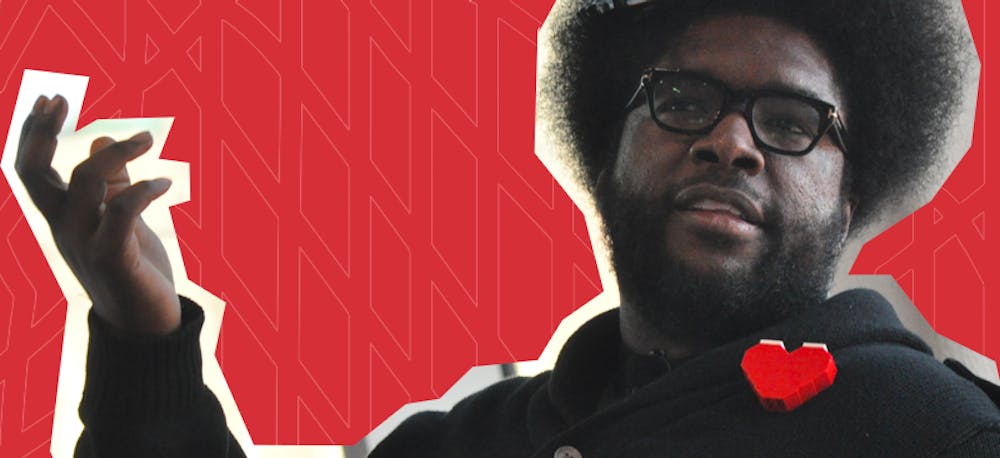Questlove reclined comfortably in his seat on the McCarter Theatre’s stage on Friday evening. He is an artist who can feel at home in any space, and his multifaceted career is a testament to this ease. Questlove, who initially earned fame as the drummer for his band The Roots, has since explored everything from music production to writing to the culinary arts. Fittingly, McCarter advertised his visit as, “Living a Creative Life: A Conversation between Questlove and Imani Perry.” Questlove’s whole life appears concerned with conversation: an experiential back-and-forth. Onstage, he never skated around a question, but listened and responded earnestly. Questlove accepted a hefty honorary degree from the University’s Class of 2019 on Friday night, but his gift to the audience was refreshingly intangible.
One of the first things Questlove mentioned upon sitting down with Professor Perry was that he is “going through [his] bad [musical] covers phase.” My initial reaction was confusion: how does bad music earn the attention and enjoyment of someone like Questlove? It wasn’t until the end of the talk that I started to get a grasp on his philosophy, and how much we as young students can learn from it.
Professor Perry pointed out that Questlove’s “vastly creative” life sets a “special” example for young folks pressured to live “narrow and controlled lives.” I would add that his focus on process over product is also deeply different from the habits of many students at universities such as Princeton.
Questlove defines creativity in part through inactivity. He believes that boredom is essential to his creative life. More important, he joked, than “bullying,” as some other artists believe. In spaces such as the University, many of us view time spent doing nothing as wasted time. Unproductivity is easy to come by, but guilt-free unproductivity is not. Questlove urges everyone to sit peacefully in these moments, saying that we “rarely get silent moments to immerse ourselves into hearing great ideas.”
Listening and absorbing, after all, is essential to creating anything worthwhile. Questlove remarked, “another reason why I collect so much music [is that] curating can inspire you.” He described playing sections of music backwards for about 10 seconds, developing a feeling about it and then allowing that feeling to produce something new. Questlove seemed to prefer speaking about these small moments in the creative process over dwelling on the finished product.
Questlove embodies a spirit of exploration that has no expiration date. When he hit a “cold period” musically in the mid-2000s, he took up writing as a fresh creative outlet. As a young person growing up in spaces like the University, each new milestone (such as declaring a major or landing a job) can feel like it closes as many doors as it opens. Yet Questlove is focused only on opening up possibilities – whether within his own creative life or through his community service work. When asked about the responsibility of an artist to their community, he responded, “In my heart I always felt as though a true revolutionary act is to ensure that people have a proper education.”
Questlove sees value in unexpected places. Speaking about his admiration for comedy as an art form, he commented that he loves watching comedians “bomb” as they experiment with and improve their material. Questlove’s appreciation for art that is incomplete or “bad,” like the cover records he has recently been collecting, appears to stem from his deeply held attitude, “I love the journey as opposed to the destination.”
Destinations may be inevitable, but we could all learn a little from the joy of the journey that this artist embodies.








